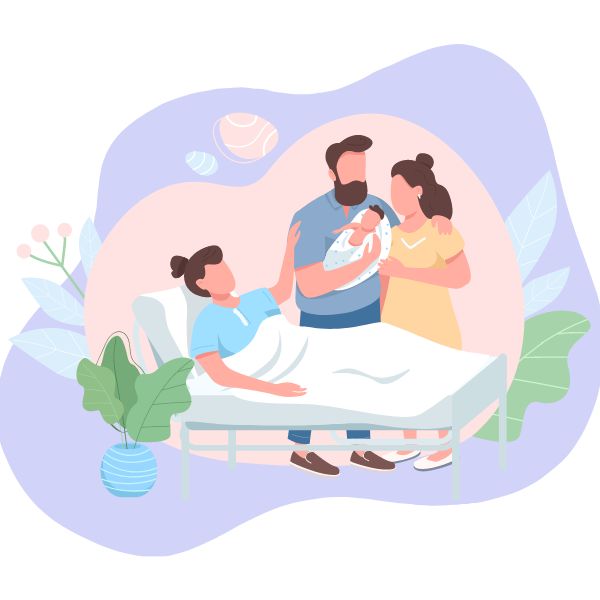Surrogacy
Best TestTube Baby Center in Delhi
What is Surrogacy?
Surrogacy is a method wherein the fertilized egg is planted inside the womb of a surrogate female who carries the pregnancy to term. Strictly, only fertilized eggs (embryos) are transferred into the womb of a surrogate known as gestational surrogacy. Traditional surrogacy, which is the insertion of the husband’s sperms into a surrogate, is not allowed.
Who Needs it?
- Absent Uterus due to hysterectomy, or congenital absence of the uterus.
- Defective Uterus (such as unicornuate uterus).
- Poor Endometrium Lining.
- Repeated IVF failures.
- Recurrent abortions not amenable to treatment.
- Severe medical conditions incompatible with pregnancy.
- Single parents.
Surrogacy Process:
Upon selection of a surrogate, the egg provider’s (the female partner herself or an egg donor) cycles are synced with the surrogate. This means that the preparation of the surrogate’s endometrial lining and the injections for egg stimulation to the egg provider is carried out simultaneously. The collection of the eggs is done usually between 10 – 14 days of stimulation, and fertilized with the husband’s healthy sperms. The fertilized eggs (embryos) are then transferred into the surrogate’s uterus 3 – 5 days after this. The pregnancy test is carried out 2 weeks later. Excess and healthy embryos are frozen for transference later (if necessary).
Legal Aspects Of Surrogacy:
The couple seeking surrogacy can either bring their own surrogate or the clinic can provide a surrogate through a certified agency. Government of India’s guidelines on IVF surrogacy makes it a legal process, requiring the names of the intending parents to be entered on the birth certificate. Commercial surrogacy is allowed, but only when both husband and wife have Indian citizenship. There is no ban yet on single parent surrogacy for Indian citizens.
Selection Criteria For A Surrogate Mother:
- Healthy and physically fit.
- Preferably less than 30 years of age.
- Happy and affable personality.
- Already delivered at least one healthy child.
- All blood investigations are normal (such as Thyroid, Thalassemia, German Measles etc.).
- Day 15-18 endometrial thickness should be > 9mm.
- She and her family understand the procedure and are willing to carry the pregnancy for 9 months.
The Surrogacy Process At AFGC:
Though we have facilities of a Surrogate Home , we do not encourage hosting our surrogates in surrogate homes, as they are mostly young mothers with small children. We believe in providing a happy pregnancy to our surrogates, and want them to live with their families, rather in solitary confinement for nine months. Our well-trained surrogate caretaker visits the pregnant surrogate frequently and ensures that proper care is being taken. Our doctors monitor the pregnancy every 2 – 3 weeks to ensure a healthy fetus. Clinic coordinators also make frequent visits to the surrogates’ homes to ensure complete care is being taken. Infact, antenatal visits and regular ultrasounds are done with higher frequency than a normal pregnancy to ensure a healthy pregnancy. Dr. Deepika Jagga personally chooses the surrogates and monitors their progress throughout the pregnancy. However, if any medical issues arise during the pregnancy we immediately admit the surrogates. In case any intended parent specifically wants a surrogate to stay at a surrogate home, we have provisions for the same.
IVF Center for Advanced Infertility
If you are looking to discuss your infertility case and explore your options, our expert team at Veramed Fertility and IVF Center is here to help.

